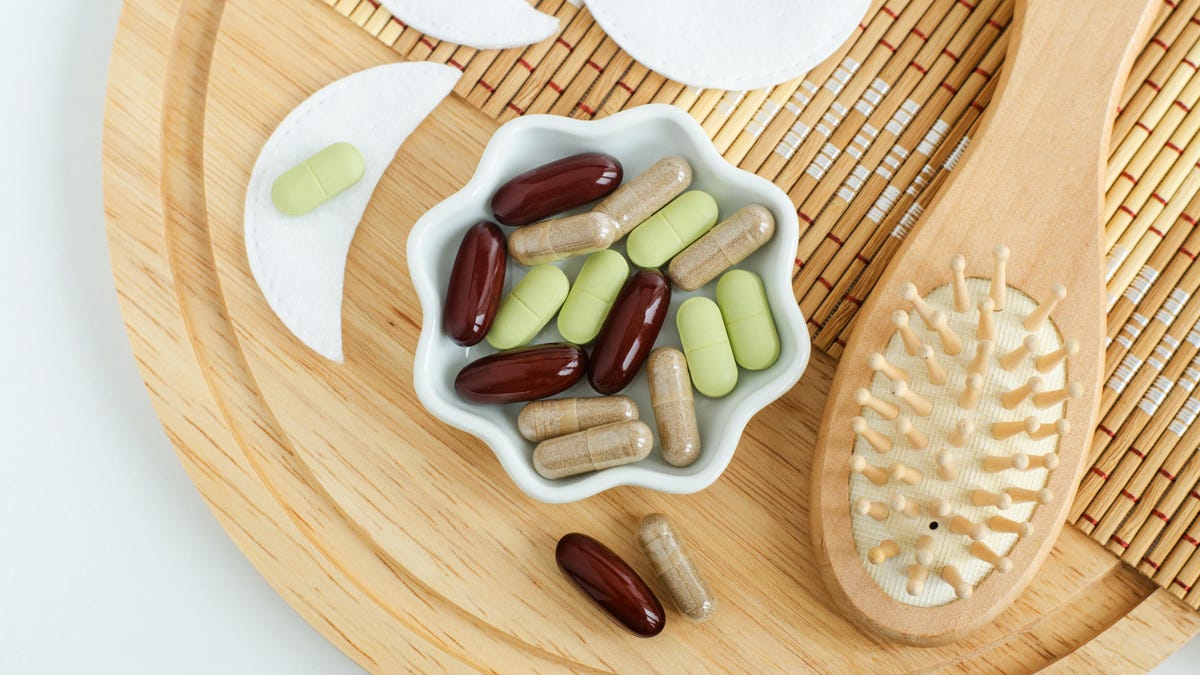Tech
Want Healthier Hair? Focus on These 7 Hair-Friendly Vitamins

Understanding Hair Loss and the Role of Vitamins
It’s completely normal to lose between 50 to 100 hairs daily, as this process happens naturally without us even noticing. However, if you’ve observed that your hair is thinning or shedding excessively, it could be due to factors like genetics, hormonal imbalances, or nutritional deficiencies. Vitamins play a crucial role in maintaining healthy hair, and incorporating the right ones into your diet can make a significant difference. A balanced diet rich in essential vitamins and minerals not only promotes hair health but also contributes to overall wellness. Before making any changes to your diet or starting supplements, it’s important to consult with a healthcare professional to ensure you’re addressing the root cause of your hair concerns.
Best Vitamins for Hair Growth and Thickness
Vitamins are essential for hair health as they aid in cell growth, protect hair from damage caused by free radicals, prevent premature graying, and nourish hair follicles to stimulate growth. Here are some of the best vitamins for hair growth and thickness:
-
Biotin (Vitamin B7): Biotin stimulates keratin production, which is vital for hair growth. It can be found in eggs, meat, fish, nuts, sweet potatoes, and seeds. The recommended daily intake is 30 micrograms for adults.
-
Vitamin A: This vitamin promotes hair cell growth and produces sebum, an oily substance that keeps the scalp and hair follicles healthy. Foods rich in beta-carotene, such as sweet potatoes, carrots, spinach, and kale, are great sources of vitamin A.
-
Vitamin C: This antioxidant-rich vitamin helps combat oxidative stress, which can lead to hair loss. It also aids in collagen production and iron absorption. Citrus fruits, peppers, strawberries, and guavas are excellent sources of vitamin C.
-
Vitamin D: Deficiencies in vitamin D have been linked to conditions like alopecia and excessive shedding. Fatty fish, cod liver oil, fortified foods, and mushrooms are good sources of vitamin D.
-
Vitamin E: Known for its antioxidant properties, vitamin E helps reduce oxidative stress and promote hair growth. Sunflower seeds, spinach, avocados, and almonds are rich in vitamin E.
-
Iron: Iron is crucial for the production of hemoglobin, which carries oxygen to cells, including hair follicles. A deficiency can lead to hair loss. Red meat, spinach, lentils, and eggs are great sources of iron.
- Zinc: Zinc supports hair growth and maintains the health of oil glands around hair follicles. Beef, spinach, pumpkin seeds, and oysters are high in zinc.
How Vitamins Promote Hair Health
Vitamins work in various ways to promote hair health. Biotin and vitamin A directly stimulate hair growth by nourishing hair follicles and producing sebum to keep the scalp moisturized. Vitamin C and E act as antioxidants, protecting hair from damage caused by free radicals and reducing oxidative stress. Iron and zinc are essential for carrying oxygen to hair cells and maintaining the health of the scalp.
Adequate intake of these vitamins can help restore damaged hair, prevent premature aging, and improve hair volume. However, it’s important to note that vitamins are not a one-size-fits-all solution. Hair loss can be caused by a combination of factors, including genetics, hormones, and environmental conditions, so it’s crucial to identify the underlying cause before starting any treatment.
The Importance of a Balanced Diet
A well-balanced diet is key to maintaining healthy hair. Incorporating foods rich in vitamins and minerals can provide the necessary nutrients for hair growth and overall health. While it’s possible to get these vitamins through supplements, it’s always best to start with whole foods. For example, eggs, nuts, and leafy greens are excellent sources of biotin, while citrus fruits and berries are packed with vitamin C.
If you’re considering supplements, it’s important to follow the recommended daily intake to avoid potential side effects. For instance, taking too much vitamin A or iron can lead to health complications. Always consult with a healthcare professional before adding any supplements to your routine.
How Long Do Hair Growth Vitamins Take to Work?
Hair growth vitamins are not a quick fix; they require patience. It can take several months before you notice any significant improvements. The effectiveness of these vitamins also depends on the underlying cause of hair loss, as well as individual factors like genetics and overall diet. For example, if hair loss is due to a hormonal imbalance, vitamins alone may not fully restore hair growth. In such cases, a healthcare professional may recommend additional treatments, such as medications or lifestyle changes.
Final Thoughts on Hair Health
While vitamins can play a significant role in promoting hair health, they are not a guaranteed solution for hair loss. If you’re experiencing significant hair loss, it’s important to consult with a healthcare professional to rule out underlying medical conditions. By combining a balanced diet rich in hair-friendly vitamins with professional advice, you can create a targeted plan to address your hair concerns. Remember, healthy hair starts from within, and taking care of your overall health is the best way to achieve long, strong, and vibrant locks.